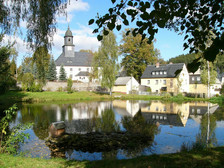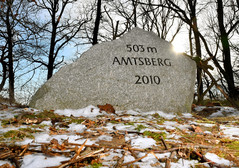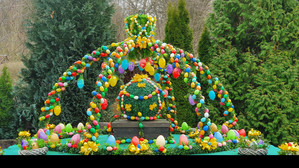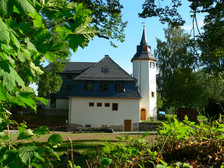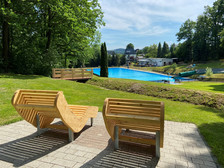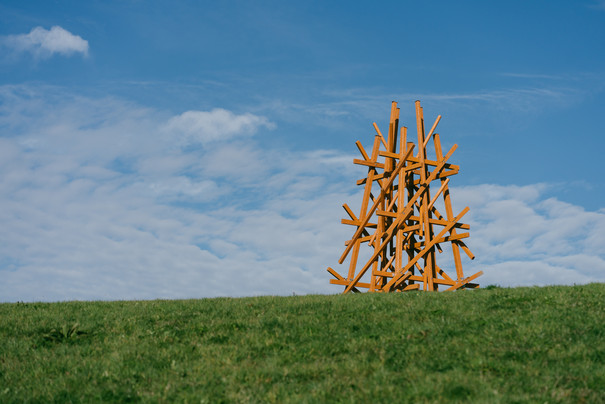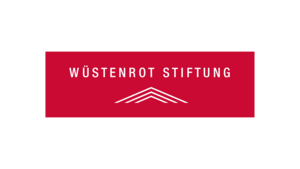Amtsberg in the Erzgebirgskreis district is a young municipality with old roots. in 1994, the current districts of Dittersdorf, Schlößchen, Weißbach and Wilischthal were merged to form the municipality of Amtsberg with around 3,600 inhabitants. The formerly independent villages can look back on a much longer history as a forest village, manor or knight's estate founded partly in the 13th century, but at least in the 14th and 15th centuries. The municipality lies directly at the transition from the foothills of the Ore Mountains to the Ore Mountains: at 553 metres above sea level, the Dittersdorfer Höhe, which has been developed for tourism since 1900, is the highest elevation with a picturesque view of the lower Ore Mountains and Chemnitz, Augustusburg Castle or Fichtelberg and Klínovec. It is part of several circular and hiking trails, such as the "Historischer Rundwanderweg", which takes you past 90 buildings in all parts of the village - churches, schools, historical and modern industrial and commercial buildings.
In spring, flowering crocus meadows are a particular eye-catcher. The lovingly designed miniature exhibition Mini-Weißbach, on the other hand, is a delight all year round, especially during the Christmas and Advent season. The cot and pyramid trail now also features over 50 cots and pyramids from the region and other countries. Various events such as the open-air "Leuchtende Steine" in the former Dittersdorf quarry, joint hikes and festivals make Amtsberg a lively community.
Olaf Holzapfel: Two woven into one
Art and sculpture trail PURPLE PATH
The sculpture Zwei in ein ander Gewobene by conceptual artist Olaf Holzapfel is a 14 metre high wooden tower made of interlocking structures. It is reminiscent of historical triangulation towers that were used to map Saxony in the 18th century. The work is not only a reminder of this technical achievement, but also of a cultural landscape created by hands. Olaf Holzapfel was born in Dresden in 1967. He now lives and works in Berlin.
